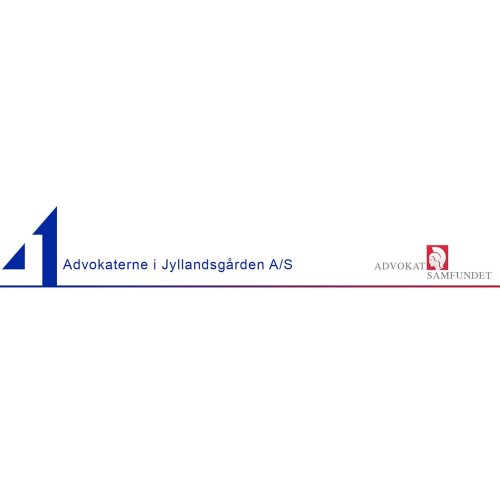Best Private Equity Lawyers in Denmark
Share your needs with us, get contacted by law firms.
Free. Takes 2 min.
Or refine your search by selecting a city:
List of the best lawyers in Denmark
About Private Equity Law in Denmark
Private Equity (PE) in Denmark refers to investments made by private equity funds and investors in Danish companies that are not publicly traded. Private equity firms typically acquire, restructure, and manage companies with the goal of increasing their value before eventually selling them at a profit. The private equity sector in Denmark has grown considerably in recent years, driven by a strong business environment, robust regulatory frameworks, and an emphasis on transparency and investor protection. Key activities in Danish private equity include leveraged buyouts, venture capital investments, management buyouts, and growth capital financing.
Why You May Need a Lawyer
Legal advice is essential at various stages of private equity transactions in Denmark due to their complex nature. Some common situations where legal assistance is crucial include:
- Structuring and negotiating private equity deals and investment agreements
- Conducting due diligence on target companies
- Drafting shareholder agreements and documentation
- Ensuring compliance with Danish corporate, tax, and financial regulations
- Managing cross-border deals involving foreign investors or assets
- Resolving disputes between fund managers, investors, or target companies
- Advising on exit strategies such as sales, mergers, or initial public offerings
- Dealing with employment and incentive arrangements for key management personnel
Local Laws Overview
Danish private equity is regulated by a combination of national laws and EU regulations. Here are some important aspects:
- Company Law: Most private equity structures involve Danish limited companies (Aktieselskab - A/S, or Anpartsselskab - ApS). The Danish Companies Act sets out key rules for management, shareholder rights, and capital structure.
- Financial Regulation: The Danish Financial Supervisory Authority (Finanstilsynet) oversees fund management, including compliance with the Alternative Investment Fund Managers Directive (AIFMD), anti-money laundering provisions, and investor protection standards.
- Competition Law: Private equity deals that result in mergers or acquisitions may require prior notification to Danish or EU competition authorities.
- Taxation: Taxation of private equity transactions involves corporate tax, capital gains tax, and VAT. Structures often need careful planning to manage tax efficiently for investors and managers, especially in cross-border setups.
- Employment and Incentives: Management incentive plans, share options, and earn-outs must comply with Danish employment and tax regulations.
- Contract Law: All agreements in private equity transactions are subject to Danish contract principles and case law.
Frequently Asked Questions
What types of companies are popular targets for private equity investment in Denmark?
Private equity investors in Denmark commonly target mid-sized and growth-stage companies across industries such as technology, life sciences, manufacturing, and consumer goods.
Is foreign investment allowed in Danish private equity?
Yes, Denmark is open to foreign investors. However, some sectors such as defense and critical infrastructure may require specific approvals according to Danish and EU law.
What legal entities are commonly used in Danish private equity?
Most private equity investments use either the Aktieselskab (A/S) or Anpartsselskab (ApS) company forms for their flexibility and limited liability protections.
Do private equity funds need to be registered or licensed in Denmark?
Yes, fund managers typically must be authorized or registered with the Danish Financial Supervisory Authority unless exempt under the Alternative Investment Fund Managers Directive (AIFMD).
What is the process for conducting due diligence in a Danish private equity deal?
Due diligence typically involves a thorough legal, financial, and operational review of the target company, often supported by lawyers, accountants, and advisors to identify any risks.
How are shareholder rights protected in Danish private equity?
Shareholder rights are regulated by the Danish Companies Act and often supplemented by shareholder agreements, which outline voting rights, exit provisions, and dispute resolution mechanisms.
What regulatory approvals may be needed for a private equity transaction?
Transactions may require competition clearance and, in some cases, sector-specific approvals or foreign direct investment (FDI) notifications, depending on the industry and size of the deal.
How are management incentive schemes structured in Danish private equity?
Incentive schemes often use shares, warrants, or options to align management interests with shareholders, structured to comply with tax and employment law requirements.
What are the typical exit strategies for private equity in Denmark?
Exits usually occur through trade sales, sales to another fund or investor, management buyouts, or initial public offerings (IPOs).
Are there any recent trends in Danish private equity law?
Recent trends include increased focus on ESG (environmental, social, and governance) issues in transactions, stricter regulatory scrutiny, and growing interest in technology and sustainability-related investments.
Additional Resources
If you are seeking information or support related to private equity in Denmark, these resources may be helpful:
- The Danish Financial Supervisory Authority (Finanstilsynet) - Supervises financial markets, fund managers, and enforcement of regulations
- Danish Business Authority (Erhvervsstyrelsen) - Manages company registrations, annual filings, and business regulation
- Danish Venture Capital and Private Equity Association (DVCA) - Offers guidance and industry insights
- The Danish Competition and Consumer Authority (Konkurrence- og Forbrugerstyrelsen) - Oversees competition law compliance
- Local law firms specializing in private equity and corporate law matters
Next Steps
If you believe you need legal advice regarding a private equity matter in Denmark, consider these steps:
- Identify the main areas where you require assistance, such as due diligence, transaction structuring, or regulatory compliance
- Gather key documents and information about your company or intended investment
- Seek out law firms or lawyers with expertise in Danish private equity and relevant industry experience
- Arrange an initial consultation to discuss your needs, timeline, and costs associated with legal services
- Stay informed about ongoing legal and regulatory changes that could impact your investment or operations
Having skilled legal counsel is vital to ensuring your private equity investments in Denmark are both successful and compliant with all relevant laws and regulations.
Lawzana helps you find the best lawyers and law firms in Denmark through a curated and pre-screened list of qualified legal professionals. Our platform offers rankings and detailed profiles of attorneys and law firms, allowing you to compare based on practice areas, including Private Equity, experience, and client feedback.
Each profile includes a description of the firm's areas of practice, client reviews, team members and partners, year of establishment, spoken languages, office locations, contact information, social media presence, and any published articles or resources. Most firms on our platform speak English and are experienced in both local and international legal matters.
Get a quote from top-rated law firms in Denmark — quickly, securely, and without unnecessary hassle.
Disclaimer:
The information provided on this page is for general informational purposes only and does not constitute legal advice. While we strive to ensure the accuracy and relevance of the content, legal information may change over time, and interpretations of the law can vary. You should always consult with a qualified legal professional for advice specific to your situation.
We disclaim all liability for actions taken or not taken based on the content of this page. If you believe any information is incorrect or outdated, please contact us, and we will review and update it where appropriate.
Browse private equity law firms by city in Denmark
Refine your search by selecting a city.














